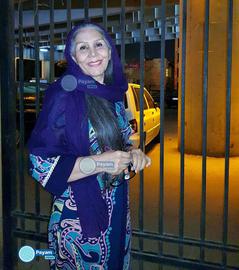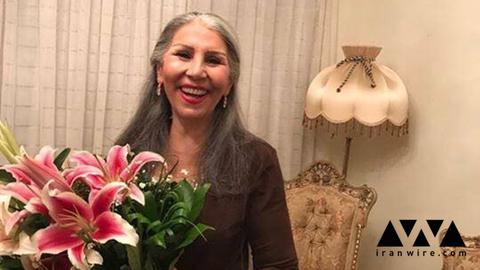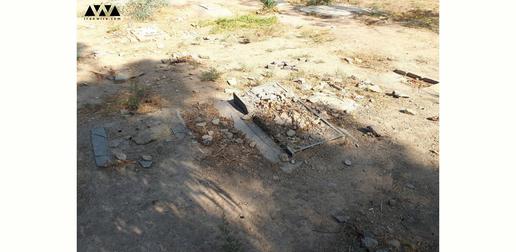Mahvash Sabet, teacher, poet and one of the seven members of the former leadership group of Iran’s Baha’i community, all of whom were jailed in 2008 because of their religious beliefs, has been released from Tehran’s infamous Evin Prison after completing her 10-year sentence.
Sabet was the first of the group to be arrested, in March 2008; her six colleagues were detained in May of that year.
Iranian Baha’is set up an ad hoc leadership group, called the “Yaran” or the Friends, when their formal institutions were declared illegal after the 1979 Islamic Revolution. The Yaran tended to the basic spiritual and material needs of Iran’s Baha’i community and did so with the knowledge and approval of the Iranian government.
The 2008 arrest of the seven members of the Yaran matched a pattern of official persecution by Iran’s government against the Baha’is, Iran’s largest religious minority, numbering at least 300,000. The persecution began in 1979 and has since grown into a constant campaign of repression.
All seven members of the Yaran were held incommunicado for weeks and without charge or access to a lawyer for for a year and a half. A group trial began in January 2010 but lasted only six brief sessions spread over five months. Their lawyer, the Nobel Peace Prize laureate Dr Shirin Ebadi, was allowed to see her clients for less than an hour. Ebadi said at the time that the charges against Sabet and her colleagues – which included espionage, propaganda against the Islamic Republic, the establishment of an illegal administration, and “spreading corruption on earth," a religious charge brought by the country’s Islamic judiciary – had no basis in fact.
“I am the head of the legal team representing these seven Baha’is. I have studied their files thoroughly,” Dr Ebadi said in an interview with WashingtonTV. “There is not a shred of evidence for the charges leveled against them.”
Sabet and her colleagues were periodically held in solitary confinement, barred from attending major family events such as funerals, weddings, births and graduations, and suffered appalling deprivations and physical or psychological hardships.
Governments and international bodies around the world condemned their arrest, the trial characterized by a lack of due process, and their unjust incarceration and treatment. The United Nations High Commissioner for Human Rights, Ms Navi Pillay, said in 2010 that the “trials did not meet the requirements of due process and fair trial,” and in 2014 the then-Secretary-General of the United Nations, Mr Ban Ki-moon, called for the “unconditional release” of the Yaran from prison.
“Bad things happen to all of us ... What matters is how we deal with them.”
A prominent former prisoner of conscience, the Iranian-American journalist Roxana Saberi, encountered Sabet and another member of the Yaran, Mrs Fariba Kamalabadi, during her 2009 detention in Evin Prison. Ms Saberi wrote in the Washington Post shortly after her release that year, that her cellmates told her: “Bad things happen to all of us ... What matters is how we deal with them.”
Sabet was a schoolteacher and principal until she was dismissed from those roles because of her religion. In 1993, she became the director of the Baha’i Institute for Higher Education, an underground university established by Iranian Baha’is in 1987 to provide for the educational needs of young Baha’is. Iran’s government bars the Baha’is from teaching and studying at the country’s universities.
Sabet became a figurehead of the jailed Yaran members – and dozens of other imprisoned Baha’is – through her work as a poet. A collection of poems written by Sabet inside prison, which were translated into English and published as the book Prison Poems in 2013, won Sabet the support of writers and activists worldwide. PEN International recognized Sabet’s poetry in November 2014 with its “Day of the Imprisoned Writer” and her verses even appear on a mural in New York City by the Chilean artist El Cekis, as part of the IranWire-affiliated Education Is Not A Crime campaign.
Ms Bani Dugal, principal representative of the Baha’i International Community to the United Nations in New York, welcomed Sabet’s release. But Dugal added that the release “does not signal the end of the persecution of the Baha’is in Iran ... Mrs. Sabet is returning to a Baha’i community under increased pressure in many ways.”
In addition to being barred from higher education, Baha’is are routinely denied business licenses or their businesses are closed and destroyed; employers are pressured to dismiss Baha’is from their jobs; and even Baha’i cemeteries are desecrated. And the Baha’i faith is routinely vilified in Iranian state media.
Sabet’s six colleagues, all of whom were given the same 10-year sentences, reduced from original 20-year terms, are also due to be released in the coming months on the completion of their sentences.
visit the accountability section
In this section of Iran Wire, you can contact the officials and launch your campaign for various problems


























comments